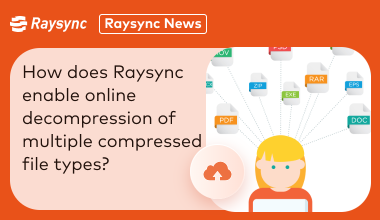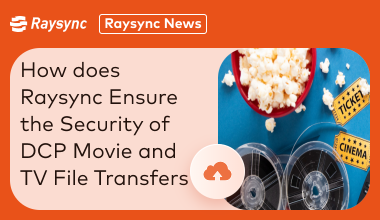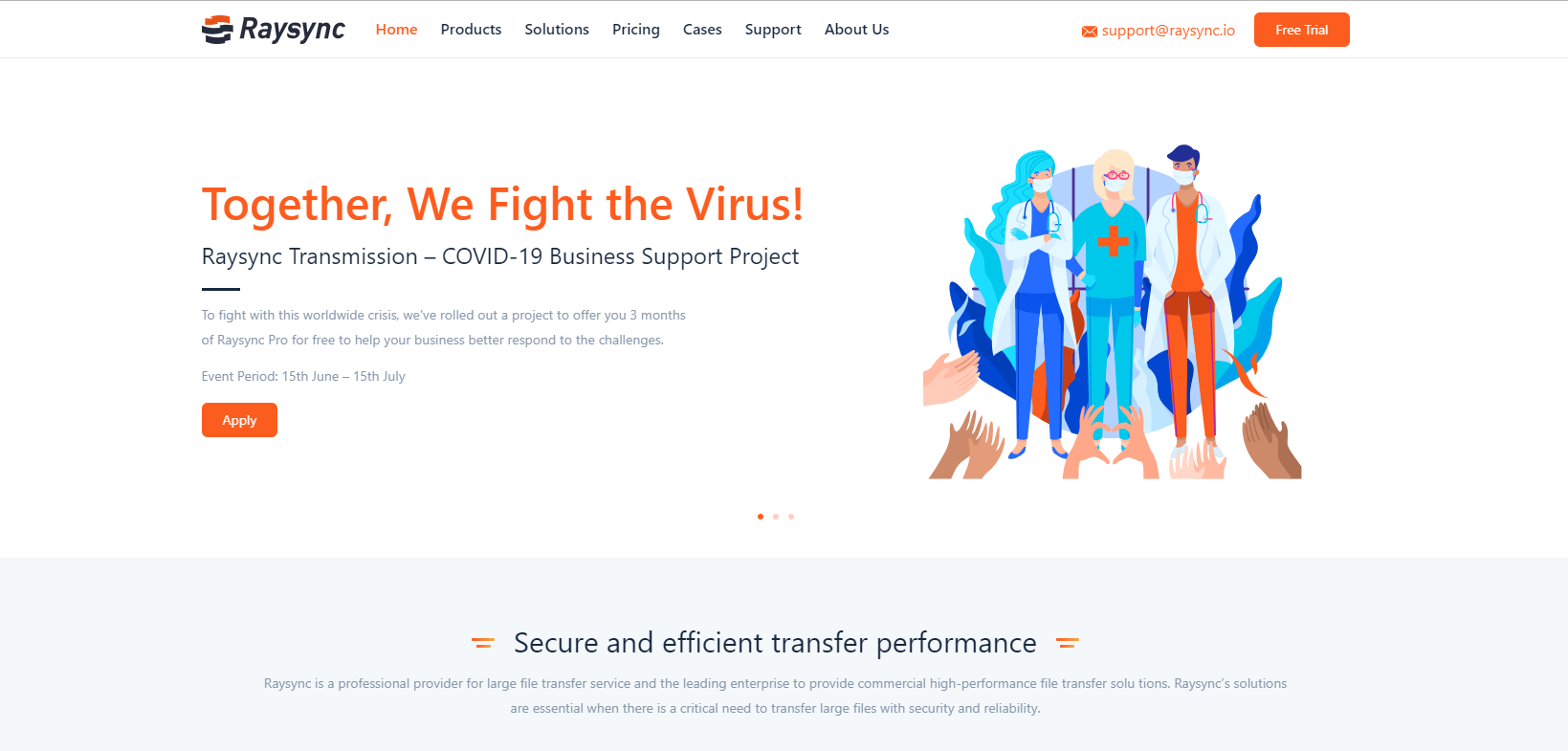How can small businesses do secure file sharing?
Secure file sharing is an essential aspect of modern business operations. As small businesses increasingly rely on digital data and remote collaboration, the need for secure file sharing solutions has become paramount. This article will explore the significance of secure file sharing for small businesses and discuss some of the available software options. Among these options, Raysync stands out as one of the leading file transfer methods. Keep reading to learn more about the importance of secure file sharing and why Raysync is the optimal solution for small businesses.
Part 1: What is Secure File Sharing?
Secure file sharing refers to the secure transfer of files between users or devices while protecting the confidentiality and integrity of the data. It ensures that sensitive business information remains safe during transit, preventing unauthorized access, interception, or data breaches. Secure file sharing solutions employ encryption protocols, access controls, and other security features to safeguard files and meet regulatory compliance requirements.
Part 2: Why is Secure File Sharing becoming increasingly important for small businesses?
Small businesses today face various security threats, including hacking attempts, data breaches, and ransomware attacks. With the proliferation of remote work and cloud-based collaboration, the risks associated with file sharing have escalated. The consequences of a security breach can be catastrophic, leading to financial losses, damaged reputation, and legal liabilities. Thus, small businesses must prioritize secure file sharing to mitigate these risks and protect their sensitive data. The main reasons for this are the following:
Data Protection: Small businesses often have limited resources to combat security threats, but their data still needs protection from hackers, data breaches, and ransomware attacks. Through secure file sharing, it ensures that only authorized personnel can access sensitive data and encrypts data transmission to prevent data theft or tampering during transit.
Compliance Requirements: With the strengthening of data protection regulations, the compliance requirements for data handling and sharing have become stricter. Small businesses need to adhere to applicable regulations such as the General Data Protection Regulation (GDPR) or industry-specific compliance standards. By adopting secure file sharing solutions, small businesses can ensure compliance and avoid penalties or legal liabilities.
Increased Remote Work: In recent years, more and more small businesses have adopted remote work models, where employees need to share files and collaborate over the internet. This increases the risk of data leaks and cyberattacks. Through secure file sharing platforms, small businesses can provide a secure remote work environment and implement measures to restrict access to and sharing of sensitive data.
Maintaining Reputation and Customer Trust: Data breaches and security vulnerabilities can severely damage the reputation and customer trust of small businesses. Customers are increasingly concerned about data protection and privacy issues, and they prefer to choose businesses that can safeguard their data. By implementing secure file sharing measures, small businesses can demonstrate their commitment to protecting customer data, enhance customer trust, and improve competitiveness.
Overall, secure file sharing not only protects the data of small businesses but also helps them comply with regulations, provide a secure remote work environment, and enhance reputation and customer trust. As a result, more and more small businesses recognize the importance of secure file sharing and take active measures to protect their data assets.
Part 3: 5 Secure File Sharing Software
File.com: File.com offers secure file sharing and storage services, featuring end-to-end encryption, customizable access controls, and comprehensive audit logs. It provides a user-friendly interface and seamless collaboration features for small businesses.
Dropbox Business: Dropbox Business offers a secure file sharing and collaboration platform that allows businesses to share files, work remotely, and manage teamwork effectively. With features like advanced admin controls and granular access permissions, Dropbox Business ensures data security.
Google Cloud: Google Cloud provides secure file sharing and storage solutions for businesses. With encryption at rest and in transit, access controls, and data loss prevention capabilities, Google Cloud ensures the integrity and confidentiality of shared files.
FileCloud: FileCloud is a secure enterprise file sharing and sync platform that allows businesses to store, share, and collaborate on files while maintaining complete control over data. It offers features such as granular access controls, endpoint backup, and activity monitoring.
Raysync - Top file transfer methods: Raysync stands out as a leading file transfer method due to its exceptional speed and security. With its proprietary Raysync protocol, it offers transfer speeds over 100 times faster than traditional FTP/HTTP methods, particularly for handling large quantities of small files. Utilizing AES-256 encryption and providing user authentication, permissions management, and log auditing, Raysync ensures secure and efficient file transfer for small businesses.
Conclusion
Secure file sharing has become increasingly vital for small businesses to protect their sensitive data from cybersecurity threats. By employing secure file sharing software like File.com, Dropbox Business, Google Cloud, FileCloud, or Raysync, small businesses can safely share and collaborate on files while ensuring data integrity and confidentiality. Among these options, Raysync stands out as the optimal solution due to its exceptional speed and robust security features. Investing in secure file sharing software is a proactive step that small businesses can take to protect their valuable data and maintain a secure working environment.
You might also like

Raysync News
April 12, 2024How does Raysync enable online decompression of multiple compressed file types?
Many compressed files are transferred to a file server. Users are unable to view or preview them. The ability to unzip files online on the server solves this problem and significantly improves the customer experience in a variety of ways.

Raysync News
March 18, 2024How does Raysync Ensure the Security of DCP Movie and TV File Transfers
The security of Digital Cinema Package (DCP) movie and TV file transfers is critical. This paper explores how Raysync, the leading solution in this space, addresses these challenges and ensures the security of these critical file transfers.

Raysync News
July 3, 2020Top 6 Large File Transfer Software for Your Business
Large file transfer software come to help manage the internal operations of file sharing centers and facilitate communication among the enterprise. Here are the top 6 large file transfer software for your business.